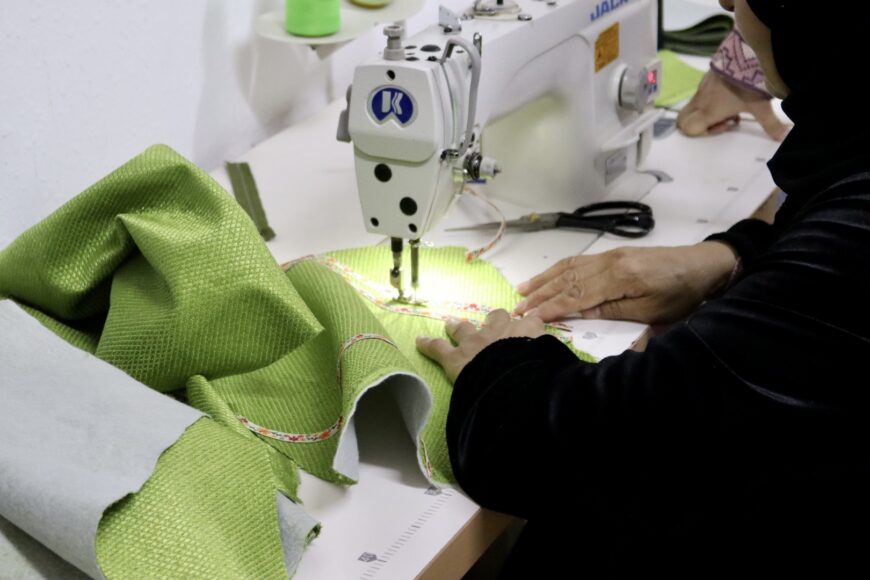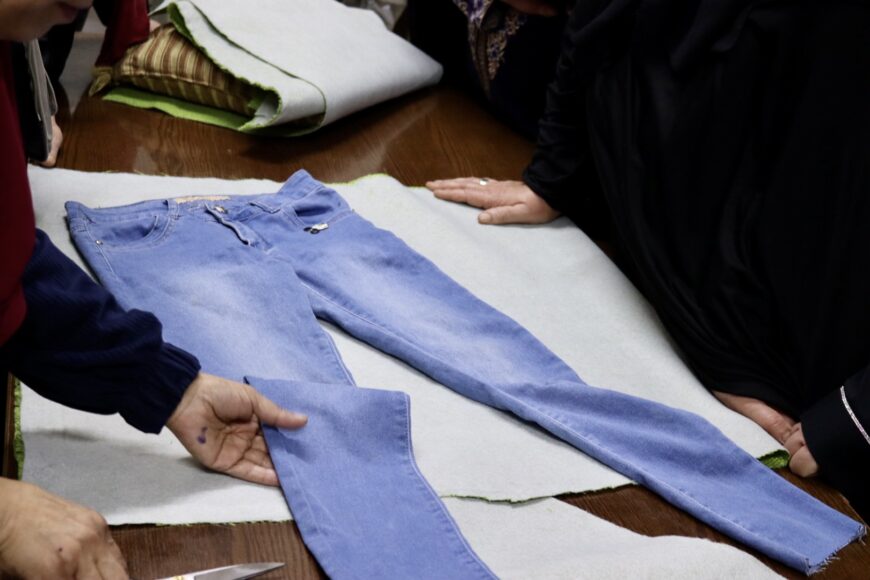Jordan is characterised by an arid climate and desertification, increasing pressures on natural resources essential for livelihoods and basic needs, especially for vulnerable Jordanian and refugee populations. As the climate crisis continues and Jordan faces significant economic challenges including high levels of inflation and unemployment, citizen-driven climate action and diversified income generating activities are central to Jordan’s livelihood and economic development.
Since 2020, through GIZ’s Waste to Positive Energy programme, ACTED is mobilizing the most vulnerable Jordanian and refugee populations in Northern Jordan, to find circular and green solutions to climate change, while contributing to local income generation.
ACTED organizes dialogue forums around common community concerns such as waste, to provide a space for dialogue between different ethnic and social groups within the communities, but also to raise awareness on recycling and solid waste management practices, and thus how effective waste management can financially support communities. Beyond facilitating constructive dialogue between Syrians and Jordanians, these spaces of dialogue support social cohesion between the communities.
What is Green Economy ?
The Green Economy is a system of economic development that prioritises sustainability and environmental responsibility, while promoting improved livelihoods and social equity. It involves innovations in business models, technologies, and policies to foster sustainable development, particularly in the areas of renewable energy, resource efficiency, waste reduction and protection of natural ecosystems. The Green Economy can therefore create new opportunities for employment, entrepreneurship, and investment while addressing pressing environmental challenges such as climate change, biodiversity loss and the overexploitation of natural resources.
Supporting citizen-driven climate action
ACTED’s community dialogue forums are organized with a wide range of social groups including women, youth, farmers, religious leaders and shop owners, within the various municipalities throughout the north of Jordan. These forums exist as an inclusive space for exchange between different community groups, genders, and nationalities, on waste-related challenges and economic opportunities. Through these forums, participants have also designed citizen-driven climate actions that leverage waste efficiency for livelihoods opportunities, such as waste recovery and upcycling initiatives.
One such initiative, “Recycling Used Fabrics and Clothes”, is led by Mafraq women’s dialogue forum. Building on members’ existing sewing and handicrafts skills, the women have designed an initiative to collect used fabrics and clothes, which are then upcycled and sold within the community.
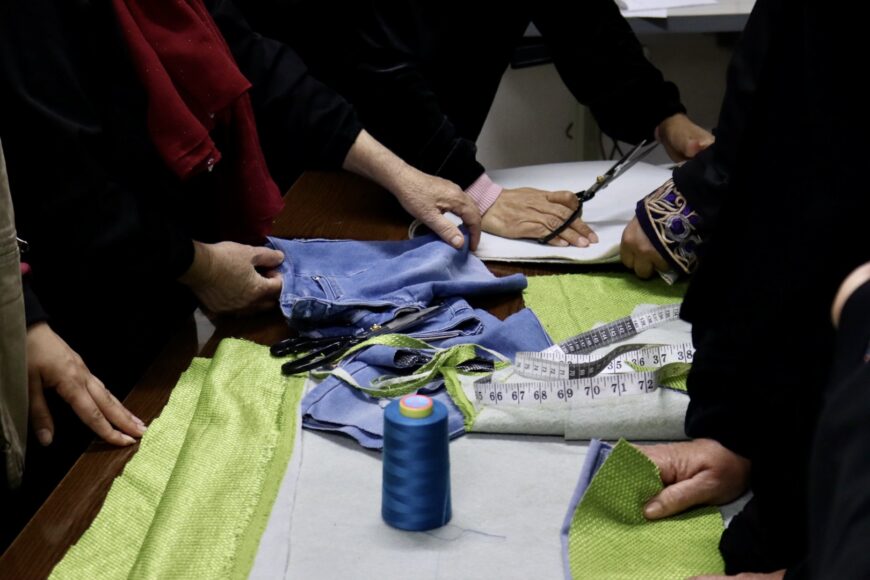
Zahra* is a 25-year-old Syrian refugee from Dara’a. She has been sewing for two years in the governorate of Mafraq, where she currently lives.
I heard about ACTED's project from relatives and neighbours and I signed up to participate in the activities. It was a wonderful and unique experience to be involved in such activities for the first time. We strengthened our sewing expertise and were encouraged to photograph and market our products through friends, neighbours and social media, which increased the number of customers and demand.
In addition, the initiative supports members and other women within the community, to develop income-generating skills in handicrafts. This initiative enables to improve women’s access to finance.
I hope to expand the project in the future, be financially and administratively independent, and export my products to local markets in Jordan.
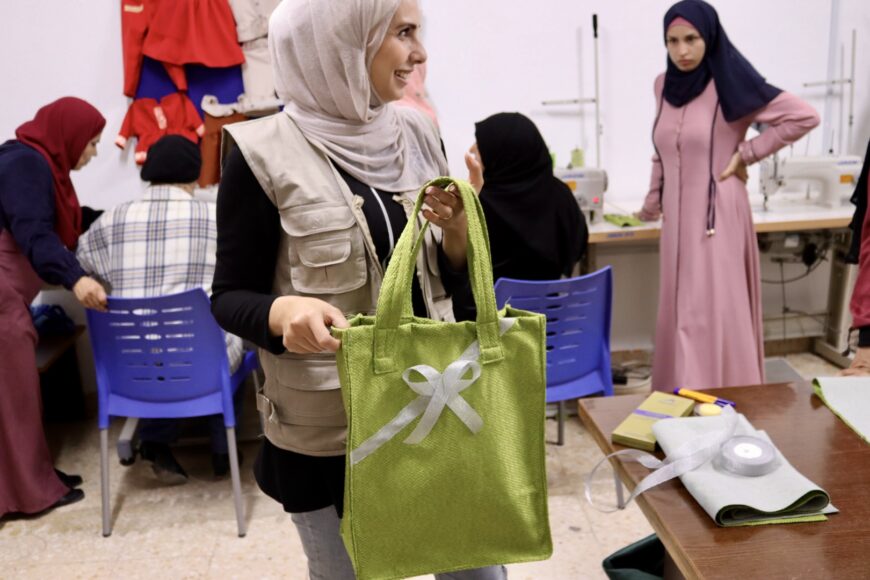
Encouraging social ties within the community through female support groups
In addition to improving access to income, the dialogue forums and the resulting initiatives provide a safe social space for women in the community to engage with and support one another, while proactively contributing to the development of their local area.
One participant, Sherine*, a 45-year-old Jordanian woman, did not know her neighbours well and felt “stuck in the house and depressed’’. Like many women in her community, she had few opportunities to connect with neighbours. As a result of her participation in the dialogue forums, Sherine* now works with her neighbours to make upcycled clothing and bags.
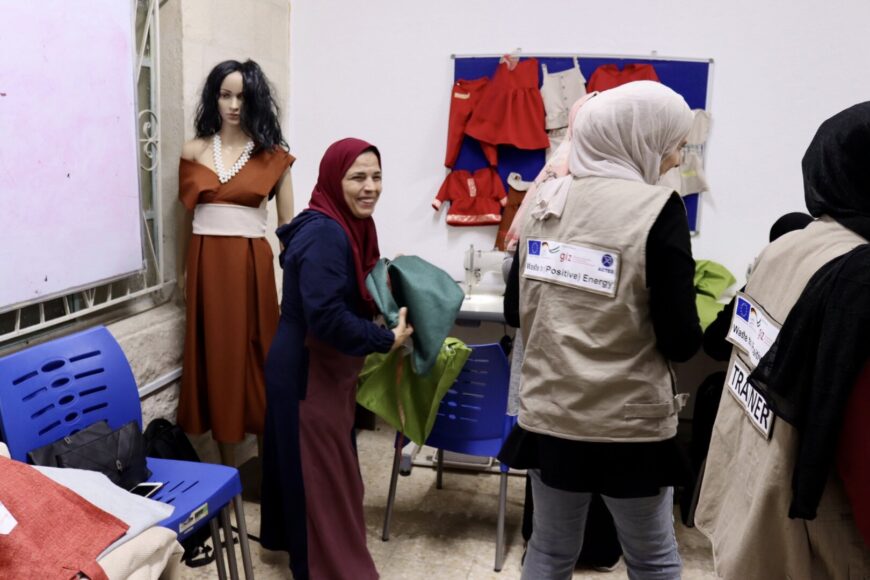
In addition to the women’s initiative ‘’Recycling Used Fabrics and Clothes’’, ACTED has provided financial and technical support to an additional 11 community initiatives in Mafraq and Azraq during 2022. These citizen initiatives range from fabric upcycling, plastic recycling and upcycling, street art awareness campaigns to the renovation of municipal gardens.
With GIZ and European Union’s support, the Waste to Positive Energy project will continue to organize dialogue forums and provide technical support and funding for community initiatives to raise awareness of the environmental and economic benefits of recycling practices and strengthen social cohesion between Syrians and Jordanians in the north of the country.


*The names of the beneficiaries have been changed for protection purposes
